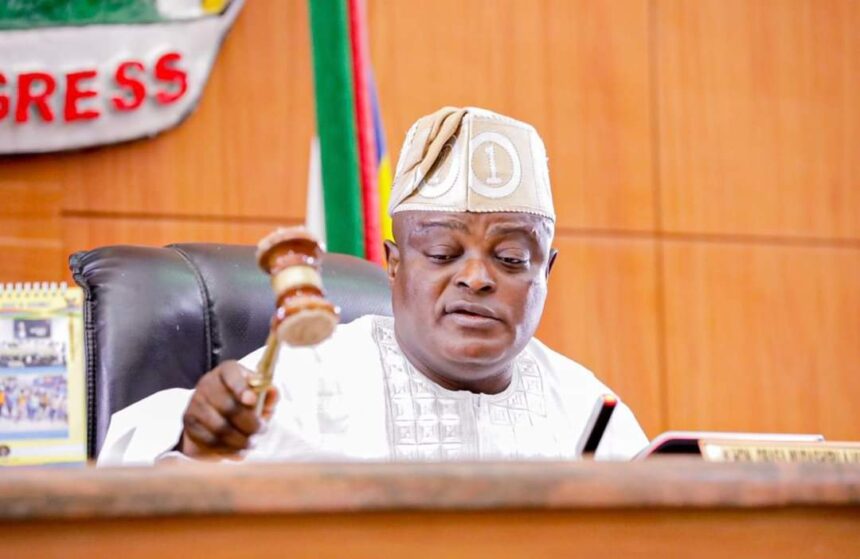The Lagos State House of Assembly is preparing to replace the existing 37 Local Council Development Areas (LCDAs) with newly designated Administrative Areas.
The 37 LCDAs were created by President Bola Tinubu in 2003 when he was governor of Lagos State.
This initiative was revealed during a public hearing for the proposed “Bill for a Law to Provide for the Local Government System, Establishment and Administration, and to Consolidate All Laws on Local Government Administration.”
The bill, which outlines the structure of local governance, states that Lagos will operate through democratically elected Local Governments.
According to the bill, Lagos will recognize 20 Local Government Areas (LGAs) as outlined in the 1999 Constitution of the Federal Republic of Nigeria.
The move coincides with the recent Supreme Court ruling granting financial autonomy to the 774 local governments across Nigeria, which requires that only democratically elected local government bodies can access federal funds.
The bill further mandates the Lagos State Independent Electoral Commission (LASIEC) to conduct elections for the 20 constitutionally recognized LGAs.
Additionally, each LGA will have designated Area Administrative Offices to enhance local governance efficiency. The bill also proposes the creation of 37 Area Administrative Councils, which will serve under the 20 LGAs.
Related News
What Tinubu told Ooni of Ife, Oba Ogunwusi, on his 50th Birthday
No vacuum in leadership: Presidency clears air on Tinubu, Shettima’s absence
Tinubu sends high-level delegation to Jigawa after tanker fire claims 105 lives
These Administrative Councils, to be headed by Area Administrative Secretaries appointed by the Governor, will be funded by the respective LGAs they serve under. The Councils will manage local matters and retain rights, obligations, and liabilities from their previous status as LCDAs.
Furthermore, the proposed law allows LGAs to delegate functions to their respective Administrative Councils. It also grants the Governor the power to suspend any chairman, vice chairman, or political appointee, with reinstatement allowed upon expiration of the suspension, subject to notification of the Assembly.
The bill will repeal both the Local Government Administration Law of 2015 and its 2016 amendment.
During the public hearing, several stakeholders, including the Ayangburen of Ikorodu, Oba Kabir Shotobi, and former Lagos State Commissioner, Hon. Oyinlomo Danmole, expressed concerns.
The Chairman of Odi Olowo/Ojuwoye LCDA, Hon. Rasak Ajala, argued that the changes could undermine grassroots development, emphasizing that LCDAs had been pivotal in local administration.
Senator Musiliu Obanikoro also criticized the lack of publicity surrounding the public hearing and stressed the importance of more inclusive consultations.
In his remarks, Speaker of the House, Rt. Hon. Mudashiru Ajayi Obasa, represented by Deputy Speaker Hon. Mojisola Meranda, described the bill as a significant step in optimizing local governance.
He noted that the bill addressed the tenure of local government officials and sought to improve the separation of powers within LGAs, ensuring greater accountability.
The Chairman of the House Committee on Local Government Administration, Hon. Sanni Okanlawon, highlighted that the public hearing aimed to gather feedback for refining the bill before its passage into law.
The Lagos State House of Assembly is preparing to replace the existing 37 Local Council Development Areas (LCDAs) with newly designated Administrative Areas.
The 37 LCDAs were created by President Bola Tinubu in 2003 when he was governor of Lagos State.
This initiative was revealed during a public hearing for the proposed “Bill for a Law to Provide for the Local Government System, Establishment and Administration, and to Consolidate All Laws on Local Government Administration.”
The bill, which outlines the structure of local governance, states that Lagos will operate through democratically elected Local Governments.
According to the bill, Lagos will recognize 20 Local Government Areas (LGAs) as outlined in the 1999 Constitution of the Federal Republic of Nigeria.
The move coincides with the recent Supreme Court ruling granting financial autonomy to the 774 local governments across Nigeria, which requires that only democratically elected local government bodies can access federal funds.
The bill further mandates the Lagos State Independent Electoral Commission (LASIEC) to conduct elections for the 20 constitutionally recognized LGAs.
Additionally, each LGA will have designated Area Administrative Offices to enhance local governance efficiency. The bill also proposes the creation of 37 Area Administrative Councils, which will serve under the 20 LGAs.
These Administrative Councils, to be headed by Area Administrative Secretaries appointed by the Governor, will be funded by the respective LGAs they serve under. The Councils will manage local matters and retain rights, obligations, and liabilities from their previous status as LCDAs.
Furthermore, the proposed law allows LGAs to delegate functions to their respective Administrative Councils. It also grants the Governor the power to suspend any chairman, vice chairman, or political appointee, with reinstatement allowed upon expiration of the suspension, subject to notification of the Assembly.
The bill will repeal both the Local Government Administration Law of 2015 and its 2016 amendment.
During the public hearing, several stakeholders, including the Ayangburen of Ikorodu, Oba Kabir Shotobi, and former Lagos State Commissioner, Hon. Oyinlomo Danmole, expressed concerns.
The Chairman of Odi Olowo/Ojuwoye LCDA, Hon. Rasak Ajala, argued that the changes could undermine grassroots development, emphasizing that LCDAs had been pivotal in local administration.
Senator Musiliu Obanikoro also criticized the lack of publicity surrounding the public hearing and stressed the importance of more inclusive consultations.
In his remarks, Speaker of the House, Rt. Hon. Mudashiru Ajayi Obasa, represented by Deputy Speaker Hon. Mojisola Meranda, described the bill as a significant step in optimizing local governance.
He noted that the bill addressed the tenure of local government officials and sought to improve the separation of powers within LGAs, ensuring greater accountability.
The Chairman of the House Committee on Local Government Administration, Hon. Sanni Okanlawon, highlighted that the public hearing aimed to gather feedback for refining the bill before its passage into law.


